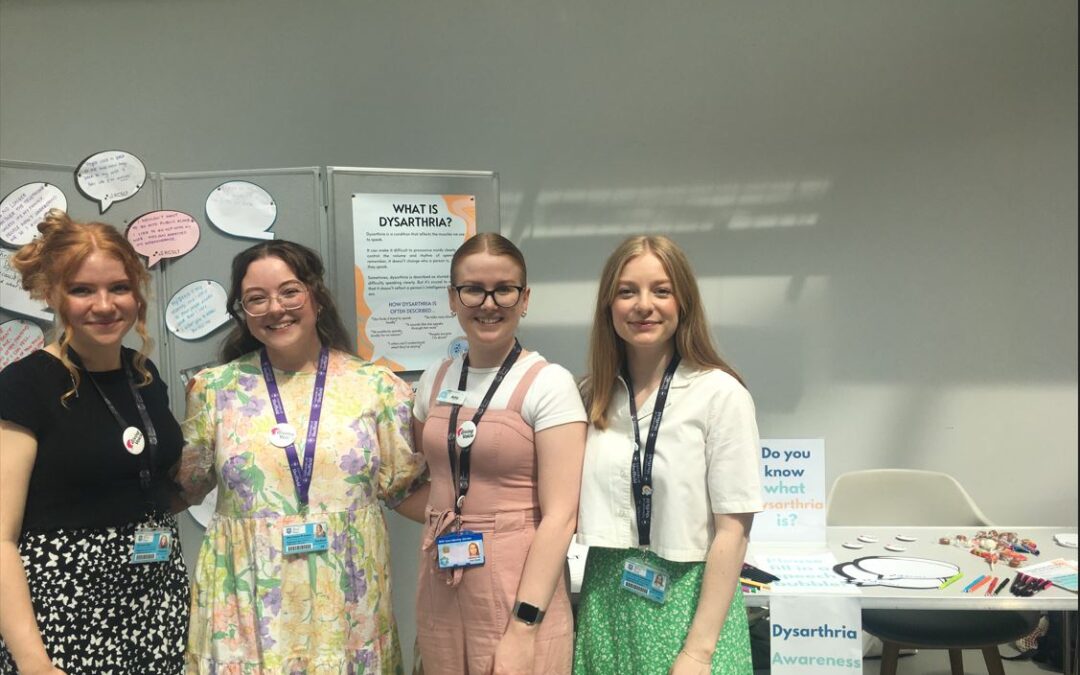The University of Sheffield has established the nation’s first National Dysarthria Day to raise awareness for the condition.
Sheffield has launched the nation’s first-ever national Dysarthria awareness day for May 10th. The day will involve stalls and activities to help the public understand what it is like to live and communicate with Dysarthria and to help them understand the condition better.
The Royal College of Speech and Language Therapists (RCSLT) has also shown strong support for the campaign, encouraging the student-led initiative. This collaboration between students, faculty, and professional organisations highlights the growing momentum behind Dysarthria Awareness Day.
Dr Caroline Haw from the University of Sheffield’s Human Communication Sciences said: “People with dysarthria have very bad experiences of communication – they are assumed to be drunk/ incapable, they are talked over.
“Communication is a basic human right – it is not acceptable that people are discriminated against or receive adverse treatment when they have dysarthria. We hope that by sharing the stories and experiences of people with dysarthria, we will raise public knowledge and awareness and ultimately improve the life experiences of people.
“Many people want to understand, but just don’t have the basic awareness of how they can communicate with people with dysarthria.”
Dysarthria is often caused by conditions that damage your brain or nerves and some medicines. It weakens the muscles we use for speech, meaning difficulty speaking. It can also make it difficult to control the volume of your voice making someone speak louder or quieter than they intended.
The university runs a clinic for clients who no longer qualify for NHS treatment, it provides long-term speech therapy and is student lead under the guidance of qualified professionals.
The day itself will feature interactive stands in the Medical School Foyer and The Wave.
Dr Haw said: “RCSLT are fully behind the campaign and have encouraged us to start the fire with direct action. I think they believe that member action is sometimes more powerful than them telling us what to do.”
For more information follow @HCS_Sheffield on twitter or click here

